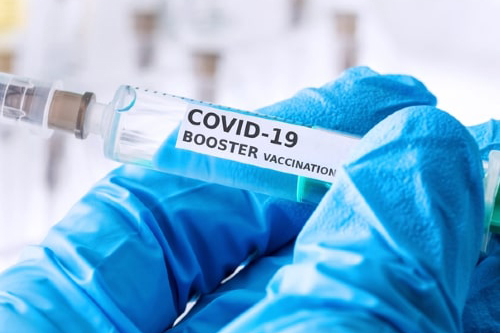BLOG - To Jab or Not to Jab? What Would You Do?
30/11/2021

In the midst of the COVID 19 Pandemic, vaccination was hailed as the light at the end of the tunnel. However, even though the UK is one of the top countries in the world for the number of vaccinations given to the population, there is still a mistrust and suspicion about the safety of the vaccines and the intentions of the people in power for urging and in some examples, imposing on the public to be vaccinated. I should clarify that public includes those staff working in the health and care sector.
In Barking and Dagenham, 109,000 residents have had their first and second doses of the vaccine – from an estimated population 0f 214,000. This accounts for 51% of local residents. A recent poll undertaken in the UK found that the number of people who have the COVID vaccine was still lower within those from a minority ethnic background.
The reasons for what is called ‘vaccine hesitancy’ in BAME communities relate to a lack of trust and confidence in the vaccine, and a lack of endorsement by trusted community leaders, as well as wider cultural, structural and language barriers. Some of the hesitancy is from misinformation spread by social media. The British Islamic Medical Association has worked to address these myths with the Islamic community, as well as answering myths that might concern people from all communities.
All of this suggests, that it is vital to continue to engage with communities to ensure that the information and messages concerning the advantages of the vaccinations are tailored to the communities they are trying to engage with. Action like this is necessary if the health and inequalities that the COVID epidemic has highlighted, are going to be addressed.
In the UK. BAME communities are disproportionately affected by COVID, with the black population being four times more likely to die from COVID than those from the white population are. From the Lancet article ‘the COVID 19 vaccines rush: participatory engagement matters more than ever’ it is highlighted how important it is to engage communities in bottom up efforts to maximise the success of vaccination programmes. This is much like what any population level intervention must do in order to be effective.
The discussions that surround these issues relate to many of the central concerns of health promotion – such as who holds the power, who is disadvantaged, who has the resources or not, and how much communities engage with in the efforts to tackle their own health problems.
For Barking and Dagenham, as part of the North East London CCG cluster, the approach is to provide more information in a variety of languages in a personalised way. People from White and Asian backgrounds have a much higher uptake of the vaccine than those from Black backgrounds, which are considerably lower. In Barking and Dagenham, these issues must be critically considered to ensure that local people are not subjected to the same emerging health inequalities.
Currently, the indications are that cases of COVID are once again on the rise – it is just as important, as previously during the pandemic, that communities are engaged with in the right ways to ensure these inequalities do not continue to occur.
Author: Richard Vann, Healthwatch Barking and Dagenham
Recent
Review of Duty of Candour: Implications for Barking and Dagenham
Last week, the Department of Health and Social Care (DHSC) launched a review into the implementation of the duty of candour in health and social care settings, sparking discussions nationwide. What is the Duty of Candour? The Duty of Candour mandates healthcare providers to be transparent and...
Understanding Women’s Reproductive Health: A Call to Share your Experiences
Women’s reproductive health is a cornerstone of overall well-being, impacting not only individuals but also families, communities, and society at large. In the UK, 51% of the population and 47% of workers are women, underlining the significance of addressing their diverse health needs. For...






